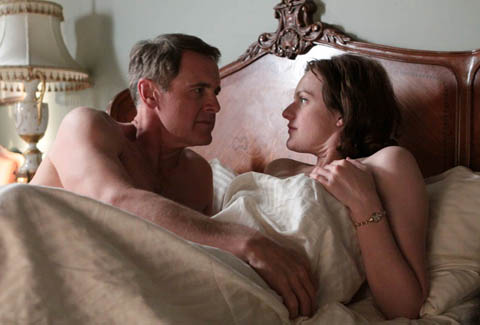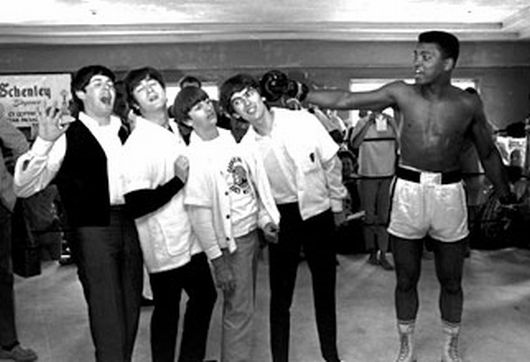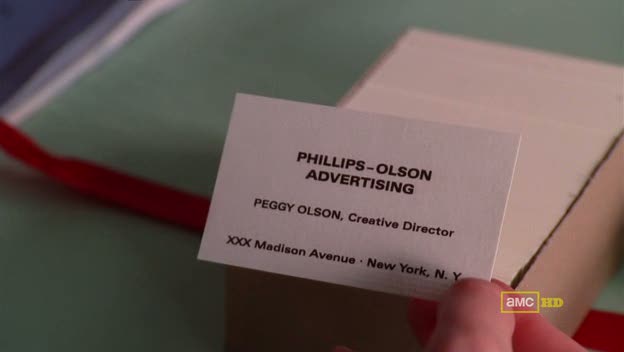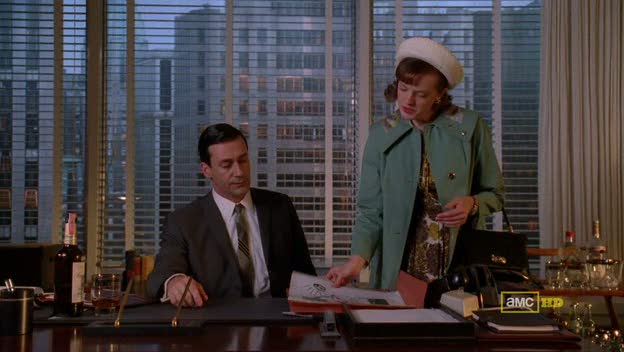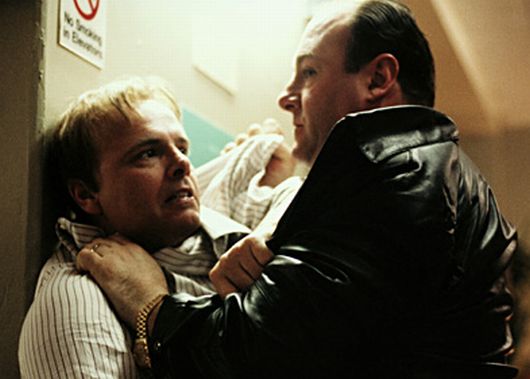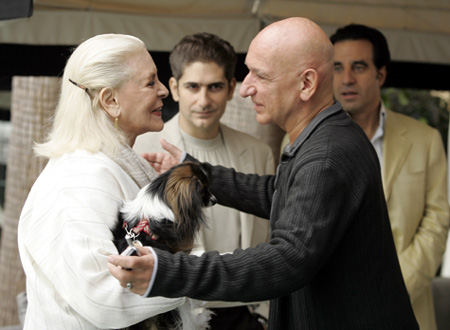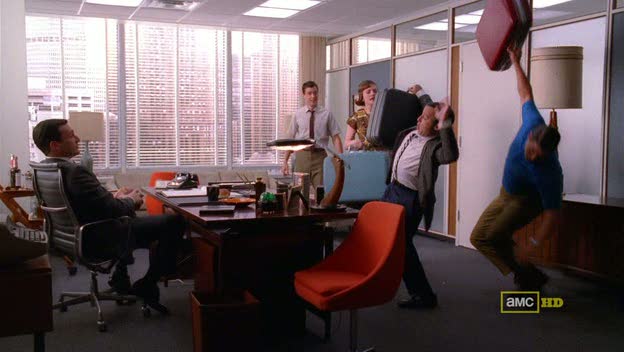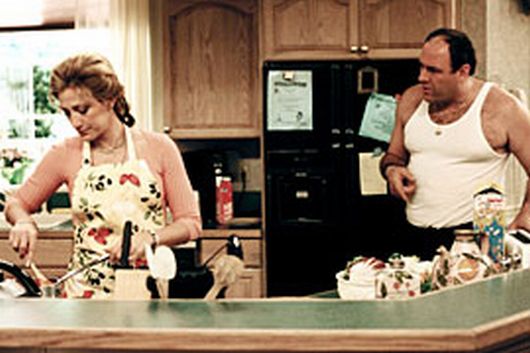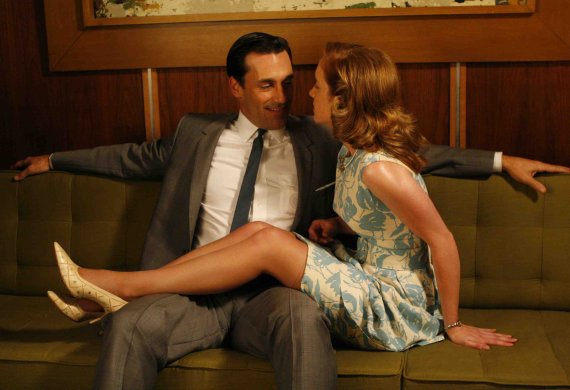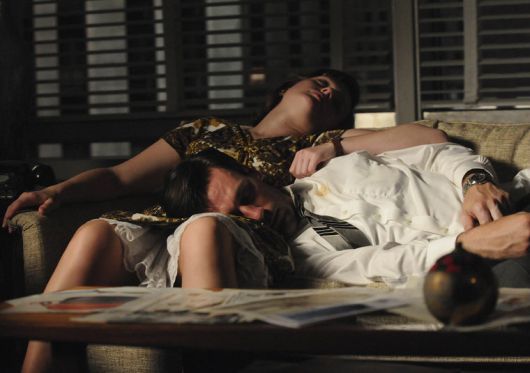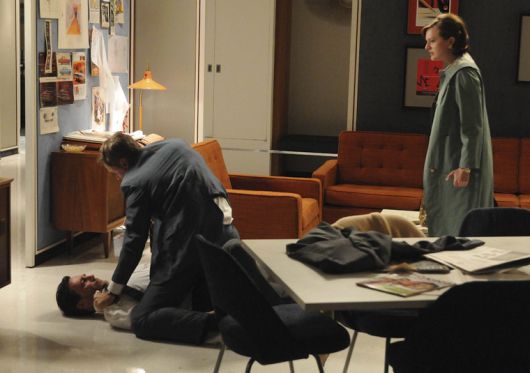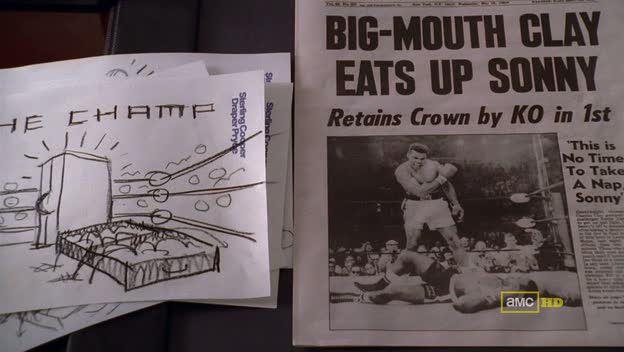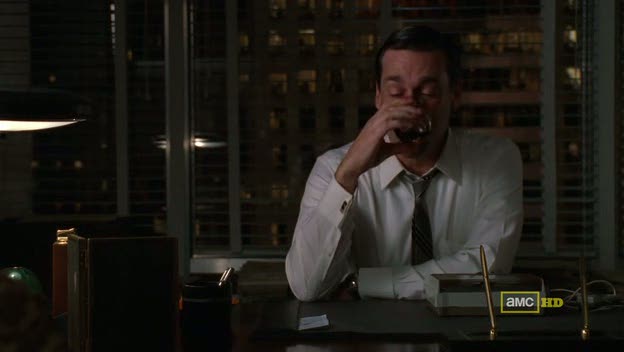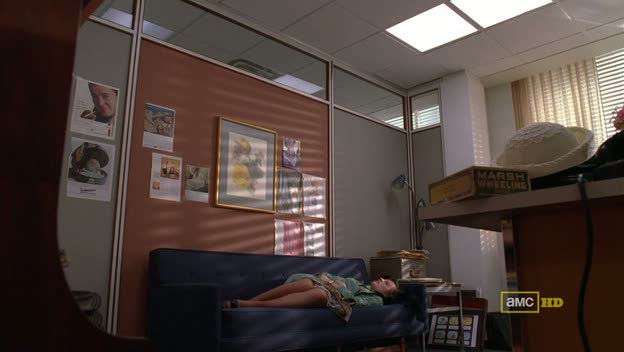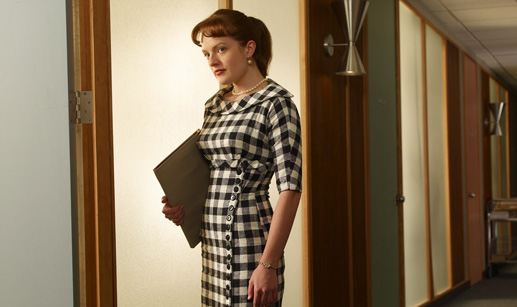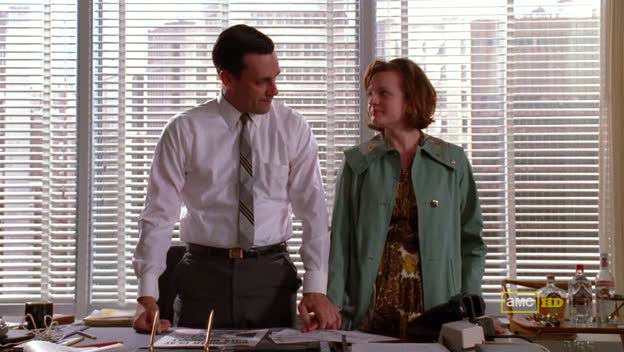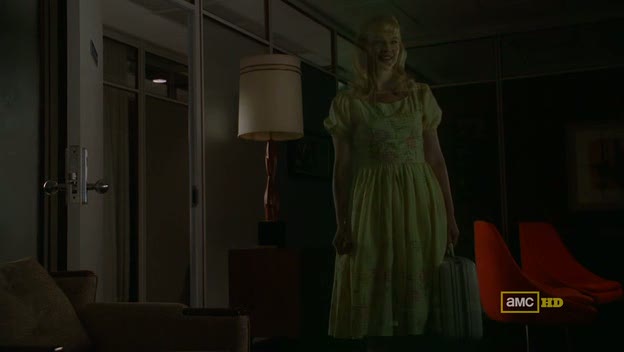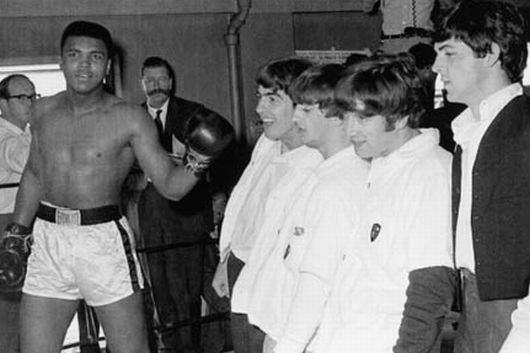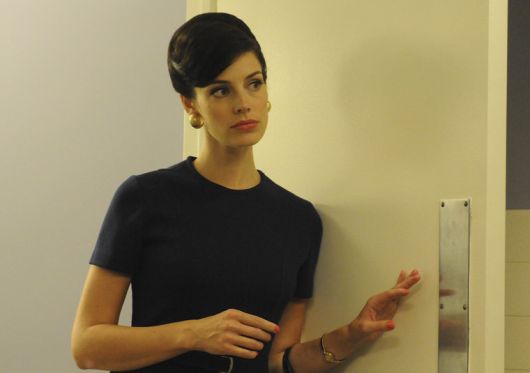 SEX
SEX In Which We Have To Consider Why Shorty Always Wanna Be A Thug
 Tuesday, March 1, 2011 at 10:52AM
Tuesday, March 1, 2011 at 10:52AM 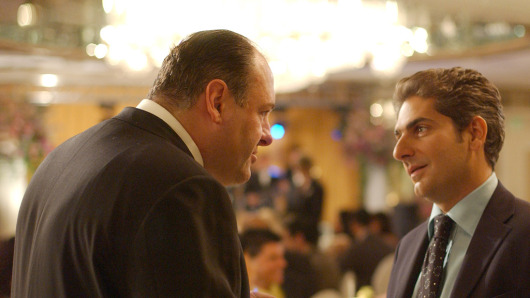
East End Boys And West End Girls
by MOLLY LAMBERT
"Men infantilize women and women tear each other down" - Tina Fey, 30 Rock
"I think you're overthinking this" - common response to my post on Boys' Clubs
Not all groups of men are Boys' Clubs. Boys' Clubs are groups of men that are misogynist and function in misogynist ways. Misogyny is hatred of women. Anything that depicts women as lesser (and strangely, sometimes as greater). Active misogyny involves denigrating women as a group through speech and practice, sexual harassment of all kinds, and contempt/overidealization of "Women" as an idea.
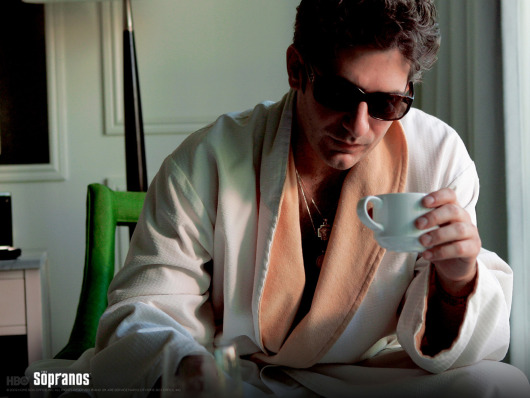
Passive misogyny (emosogyny) is underestimating and/or stereotyping women based on deeply ingrained cultural stereotypes and ignorance, and then getting defensive when you are called out because you do not consider yourself sexist and you do not like being wrong. The refusal to accept that you might ever be wrong is a big part of "Masculinity." It is called sticking to your guns, and it is what got us George W. Bush.
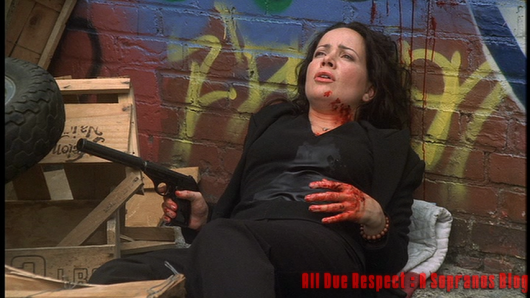
Janeane Garofalo in the film in the Sopranos episode "D-Girl" where Chris goes to LA
Not all men are misogynists. Not all women are feminists. Men can be the biggest feminists (Alex Carnevale) and women can be the worst misogynists. The culture hates women (Hall Pass) because plenty of men do hate women. They hate women because they don't understand them. They don't understand women because they think they are different. "Good" women are untouchable and "Bad" women are disposable. They often hate women because they are fixated on the idea of women rejecting them sexually, and they project this perceived rejection onto every woman they meet. They think women and men are separate categories of human being. Separate is never equal. Misogynists run most of Hollywood. No lie. I'm not making this shit up. I wish I were!
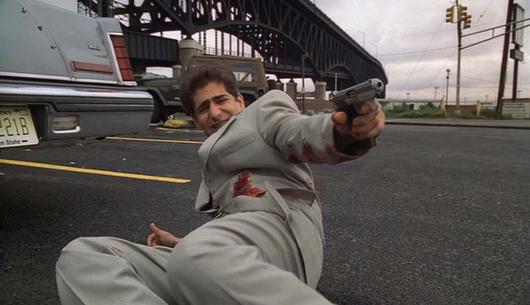
One of the best running jokes on The Sopranos was that every time Christopher Moltisanti went to Hollywood he would be horrified by how much worse it was than the Mafia. For some reason, he thought it would be different in a different Boys' Club (lol Chris, so did we). Hollywood, Wall Street, the music business. It's all pretty fucked.
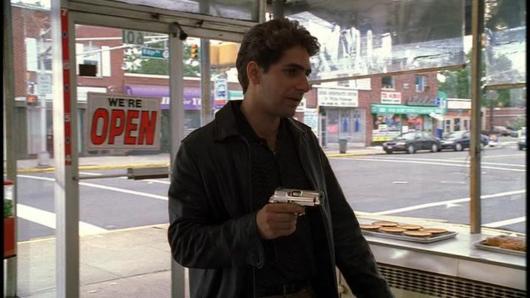
Christopher was always the most sympathetic member of the crew, because he was aware of how sensitive he actually was (although he was constantly trying to repress this awareness). He attempted to channel this sensitivity into writing screenplays, which infuriated Tony because expressing your feelings is a betrayal of Omertà.
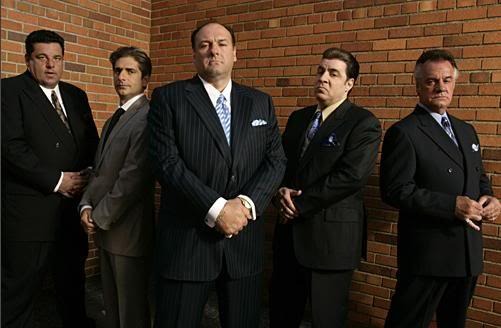
Because of the culture he grew up in Christopher never considered that he didn't actually have to join the Mafia at all. He believed he had no choice. He found it hard to kill somebody for the first time in the first season because everybody finds it hard to kill somebody the first time. It only becomes easier through repetition, and even then it never gets completely easy to murder other people, unless you are a sociopath.
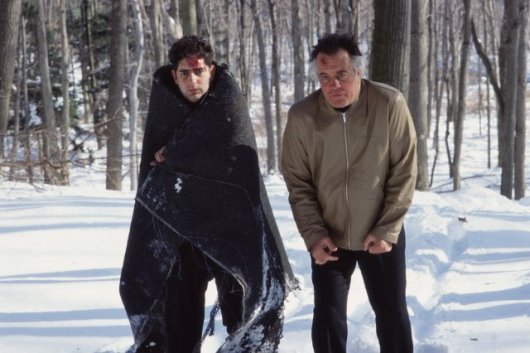
Most people are not sociopaths, but "Masculinity" involves aspiring to be one. But most men are not gangsters. Not all men are capable of murder (and sometimes women are). Everyone has violent impulses, which is why women who have Postpartum often describe intense negative fantasies about hurting or killing their newborn babies.
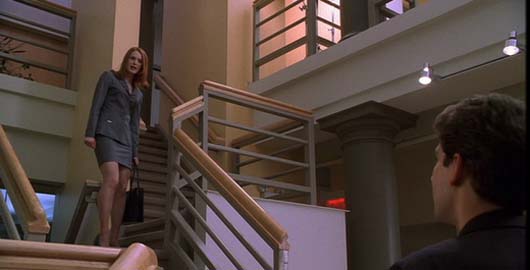
"Excuse me, I'm a vice president! You fucking asshole!" - future Joan Holloway D-Girl
It is not a tremendous reach to imagine that the kind of corrosive misogyny that dominates the Hollywood studio and agency Boys' Club atmospheres would reproduce itself in other extremely male-dominated corporate climates, particularly ones that run testosterone heavy. I respect aggression on the court, but not off the court (I respect Ron Artest much more than Kobe Bryant). Women are taught and told to suppress their anger and drive. Men are taught to rely too much on it. Intelligent women learn to channel that anger and drive (to do the black swan). Intelligent men learn to channel their anger into their work and leave it out of their relationship with/to women.
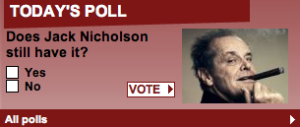
Men who buy "Masculinity" believe there's a connection between channeling anger into your work and channeling it into the rest of your life. They don't understand compartmentalization. Jack Nicholson got trapped in being "Jack Nicholson" all the time and is having serious regrets at age 73. Robert DeNiro is by all accounts a very mild-mannered guy who channels his libido into his acting, into "Robert DeNiro."

Kanye West is dealing with this on the public stage. All artists do, but now so does everyone who "exists" on the internet. You create/project the idealized image you want to see onscreen. Other people believe in this image, and you may start to believe that you are the same person offscreen. But make no mistake, it is different onscreen. Men who want to be Don Draper are buying the big lie that there is a Don Draper (that there is a James Bond). There is no Don Draper. There is only Dick Whitman.
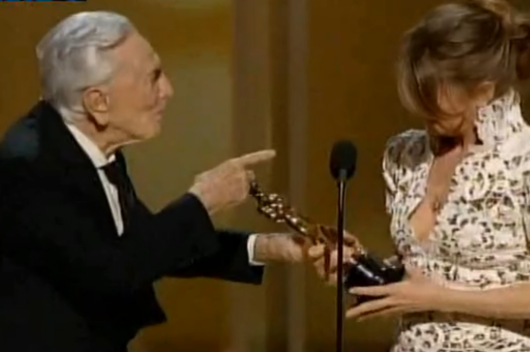
We all turn into Kirk Douglas at the Oscars eventually. That's the way love goes. :(
Let's use The Oscars as a microcosm of other rooms: The Kodak Theater auditorium was filled with a predominately white audience. White privilege is invisible, as is whiteness. White people tend to look at the room without immediately noticing that it is predominately white. They do not notice that it is white because a predominately white room seems "normal." Minorities appeared onscreen a few times, extremely briefly. An auditorium that accurately reflected the racial makeup of Los Angeles, the city where the Oscars take place, would be at least half Hispanic and also much more Asian and Black. That would seem "weird" in the context of the Oscars auditorium as we are used to it looking as of now, but it seems way fucking weirder that the room is still so incredibly white in 2011 particularly given the actual racial diversity of LA.
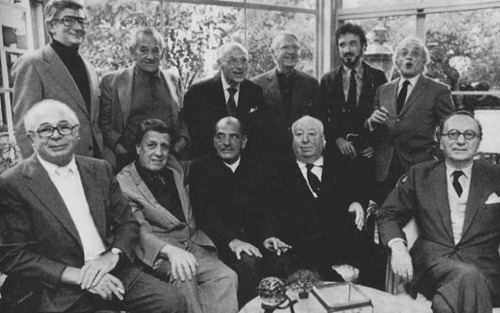
On November 16, 1972 Alfred Hitchcock was invited to a luncheon honoring Spanish filmmaker Luis Buñuel at director George Cukor’s house. From left, standing: Robert Mulligan, William Wyler, Cukor, Robert Wise, unknown, and Louis Malle. Seated: Billy Wilder, George Stevens, Buñuel, Hitchcock and Rouben Mamoulian.
The Best Director category was all men. Last year when Kathryn Bigelow was nominated and won, the other four nominees were still men. If there were two women nominated for Best Director, it would seem unusual. If there were three women and two men nominated, it would seem more unusual still. If there were five women nominated for Best Director, I don't know, the world would tip off its axis and spin into outer space.
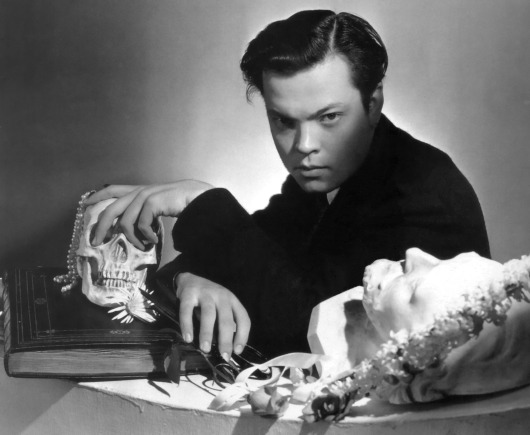
Auteur Theory: all film directors must be Caucasian boy geniuses with father issues
That five white male directors is still automatically accepted as "normal" by both men and women is an example of how cultural stereotypes lead us to believe that unfair things must actually be fair, simply by virtue of tradition and continued existence.
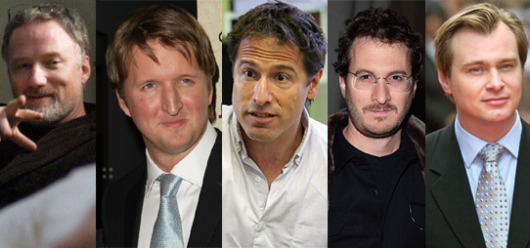
one of these guys has a serious drug problem but all five have a serious hair problem
"What if white men are just the best directors?" (- a troll) I am not saying those five guys are not all great directors, because I think they all are. I'm just saying the idea that five heterosexual white men in any room with a closed door, is suspicious in 2011. You can extend it to any field, to any room, to any socially exclusive club or profession. The Supreme Court. The Friars Club. The New York Times Book Review.
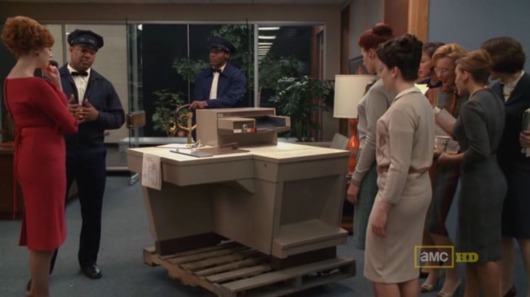
and you girls get the big important job of copying things on the new xerox machine!
"What if straight white men just happen to be the best directors/ surgeons/ judges/ chefs/ CEOs/ programmers/ musicians/ comedians/ DJs/ authors?" Sure there will always be some who are supernaturally talented, but always? All the time? Girl PLEASE. Most straight white men would not like to think too much about their privilege, because they would not like to think that they didn't deserve anything they have achieved, and they bring up their own weaknesses as proof. That is privilege denying. Unfortunately they are still in charge of a lot of shit that the rest of us want to do.
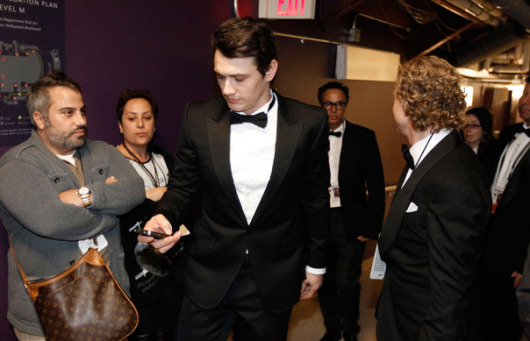
the world loves a tall handsome white guy but it also hates absolutely anything else
Straight white men have a special status in our culture that no other group has. And everyone else belongs to one of those other groups, and you're damn right we're aware of the privileges straight white men automatically receive in our society. The best straight white guys: Kurt Cobain, John Lennon, James Franco, use this privilege as a platform to ask why we are listening to them more than we listen to anyone else.
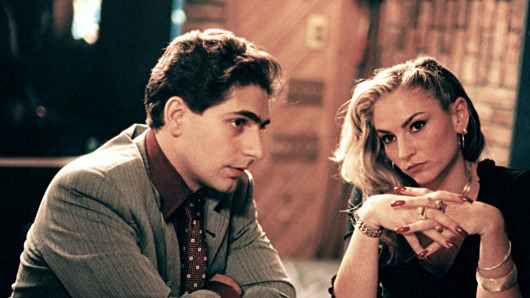
Chris & Ade, a rare accurate depiction of the friendship between two people in love
Privilege is the absence of equality. The mainstream misogynist culture attacked Yoko Ono because John Lennon dared to suggest that she was an artist on the same level as himself, equally as important as he was in the world. That her ideas were just as if not more valuable than his. That his consciousness and practice were being expanded through collaborating with her, similar to (and building on) the way it had been expanded through his songwriting and friendship with Paul McCartney. Mainstream culture privileges bromance over romance because it privileges men over women.
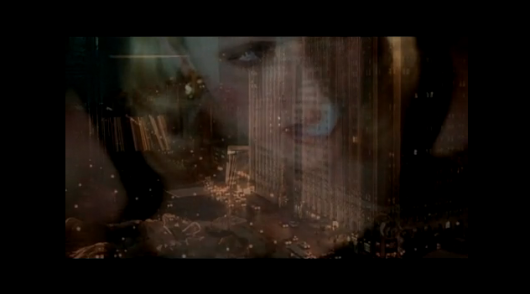
from the video for Bad Girl, part of David Fincher's indomitable Madonna trilogy
In the "Men Can Be Feminists" department, the films that were nominated this year were unusually feminist except perhaps Incpetion. Christopher Nolan cannot write women but also can't write human beings realistically. We can't discount Nolan entirely because of Ellen Page. In the "Hollywood Is Still Super Misogynist" department, despite making an incredibly high grossing film (Twilight) Catherine Hardwicke was not allowed a look at The Fighter script. She was told a man needed to direct it.
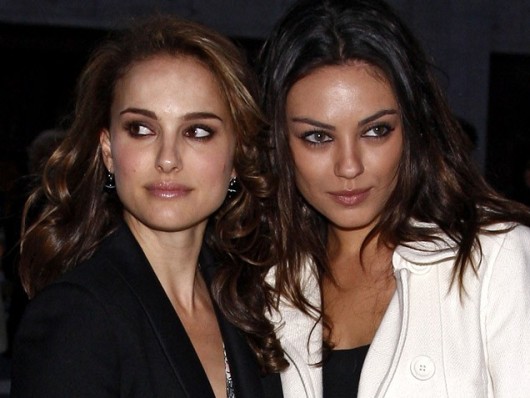
Black Swan was an aggressively feminist mainstream artwork (much like MIA's MAYA). "Women" and "Mainstream" are seen as incompatible by the misogynists that run Hollywood because the culture of "Women" is not mainstream, it is always secondary to the mainstream culture which is geared towards "Men." Television seems slightly more accepting of women than film because TV is the woman to film's man. The internet is accepting of women because the internet is a great space for queering media.
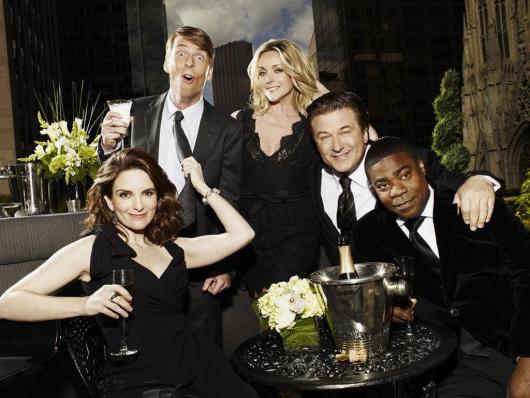
Judd Apatow, after getting over his defensive anger at being accused of sexism, did the best thing possible by hiring Kristen Wiig to write Bridesmaids and producing a TV show with Lena Dunham. The next Woody Allen will not look anything like Woody Allen. She will probably look like Lena Dunham or Mindy Kaling or Liz Meriwether.
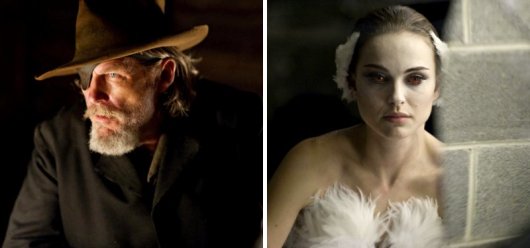
Black Swan got denigrated most often as Camp because Camp, like Women and Ballet movies, is not something to be taken as seriously as men and Westerns. That's why it's great that the Coen Brothers made True Grit a feminist Western, as if to demonstrate that the concepts of Feminist and Western are no more incompatible than the ideas of Feminism and Men. Raising Arizona is a feminist Western about fatherhood.
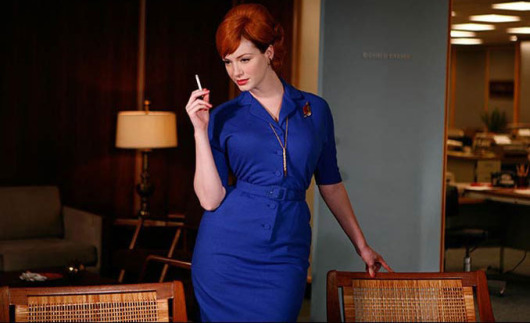
The idea that any two ideas must be incompatible is the whole problem. That any dichotomy must be "vs." rather than "and." Binary oppositions are straw men. They are rarely actually in opposition. "I am large, I contain multitudes." Men AND Women. Good AND Bad. Virgin AND Whore. Loud AND Quiet. Peace AND Violence. Logic AND Feeling. Serious AND Funny. Eastern AND Western. High AND Low. New York AND Los Angeles.
Molly Lambert is the Vice President of This Recording. Get your own goddamn coffee. She last wrote in these pages about Taylor Swift and Ernest Hemingway. You can find How To Be A Woman In Any Boys Club here and Speak Now here. She tumbls here and twitters here.
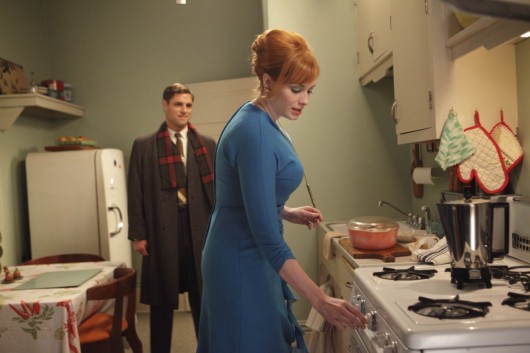
"My Drive Thru" - N.E.R.D. ft. Santigold & Julian Casablancas (mp3)
"Under Cover of Darkness" - The Strokes (mp3)
"You're So Right" - The Strokes (mp3)






















































